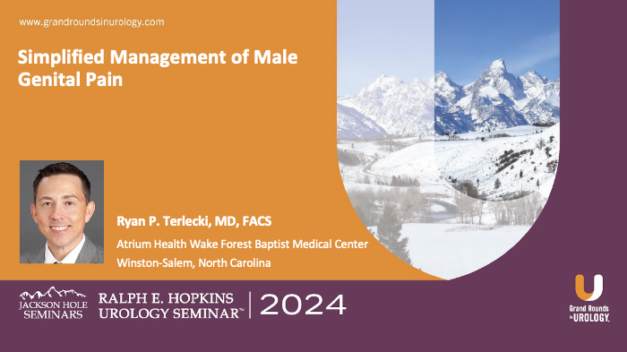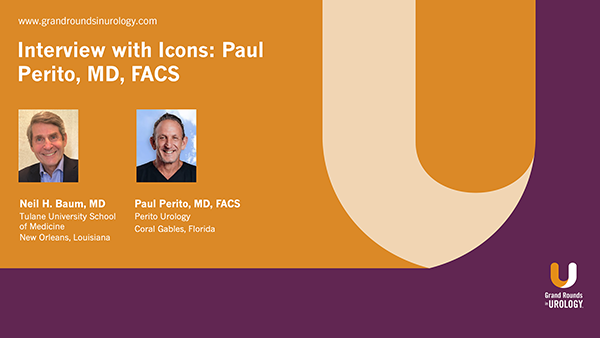Simplified Management of Male Genital Pain
Ryan P. Terlecki, MD, FACS, presents a focused and practical approach to managing male genital pain, emphasizing simplification in both diagnosis and treatment. In this presentation, he stresses the importance of thorough patient history and physical examination and introduces a streamlined diagnostic framework to identify the underlying causes of genital pain.
Dr. Terlecki advocates for an intake questionnaire, physical exam, and lab work, focusing on symptom relief and quality of life as primary treatment goals. He reviews various medical causes of symptoms and possible treatment solutions, including referrals to other health practitioners, such as pain management specialists, orthopedists, or even alternative medicine providers. His insights provide a clear and actionable framework for urologists seeking to improve outcomes for patients suffering from this often debilitating condition.
Read More




